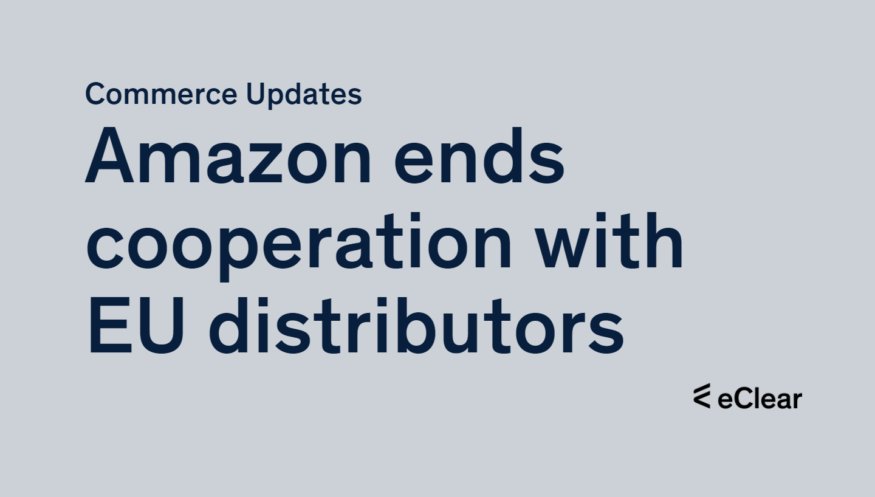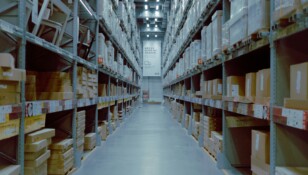Amazon has informed European distributors that it will stop sourcing their products in the coming months, as the company looks for ways to cut costs, reported CNBC. Unlike third-party merchants, who handle the selling process themselves, distributors act as a middleman between Amazon and retail brands by buying up inventory from the product manufacturer, then selling it to Amazon.
By cutting ties with distributors, Amazon gains greater control over its relationships with brands who want to sell their goods on the site, including more influence over costs and product selection. The move coincides with Amazon’s broader push to automate aspects of its vendor management business, and Amazon CEO Andy Jassy has been aggressively cutting expenses across the company as it stares down a worsening economic outlook and slowing sales.
Distributors will still be able to continue selling goods on Amazon as third-party merchants. The change could have a lasting impact on distributors’ overall business, as some vendors use the revenue from their distributed products to finance the development of their own brands.
Amazon in Germany is increasing the minimum order value for free shipping to €39, up from €29, to offset rising delivery costs, reports Merkur. However, Amazon Prime customers and some goods, such as books, will be exempt. The decision is the first adjustment to the limit since 2017. The shipping costs themselves and exemption rules will remain unchanged for the time being.
According to Onlinehändler News, fees for merchants on Amazon have increased steadily since 2016, averaging 50% of sales prices in 2022 for the first time, eroding third-party seller margins. Smaller businesses on the platform may struggle to operate profitably, but Amazon must balance the need to increase fees with the challenging market situation.
The system directive establishing the general excise duty system was superseded
German Customs has announced that EU Directive 2020/262 was replaced by Directive 2008/118/EC on 13 February 2023. Among other things, it stipulates that movements of excisable goods between Member States must be carried out using Exise Moving and Control System (EMCS) from 13 February 2023 and that from 1 January 2024, a receipt will only be possible using EMCS. In addition, further innovations, such as the introduction of certified consignees and consignors, will be introduced. Implementation into national law should take place by the end of 2021.
Two new VAT initiatives in the pipeline for the EU
The EU lost €93 billion in VAT revenue in 2020 due to fraud and other economic factors. To combat this loss, the Commission plans to amend EU rules on administrative cooperation and fraud prevention to enhance tax administrations’ tools. The collaboration between EU countries is crucial in reducing VAT revenue loss.
As part of the “action plan for fair and simple taxation to support the recovery strategy,” an initiative will assess and revise the special VAT scheme for travel agents, VAT rules on passenger transport, and the VAT exemption regime for non-EU travellers. Further measures may be considered to aid the travel and tourism industries as COVID-19 restrictions significantly impacted them.
“Fulda bei eBay”: Launch of a new local online marketplace for City of Fulda
In cooperation with City Marketing Fulda, eBay Germany has set up a local marketplace for Fulda. On the website www.ebay-deine-stadt.de/fulda, buyers can find more than 100 offers from commercial traders in Fulda, many of whom also have a stationary shop. Thus, residents of Fulda can support their local businesses through targeted online purchases or find out about the traders’ offers before purchasing in a retail shop.
Kaufland launched its marketplace in Slovakia
Kaufland’s online marketplace is growing internationally. Since 15 February, customers in Slovakia are able to shop on the online marketplace, which offers seven product categories. The Kaufland Global Marketplace enables online retailers to expand their target groups and reach millions of new customers through various sales channels. With just one registration, sellers can sell their products on the German marketplace and the Slovakian Kaufland marketplace. Kaufland offers its merchants additional services such as advertising, payment processing in local currency and free translation of product information.
EU Commission informs about progress on electronic systems for the Union Customs Code
The European Commission has issued a report on developing electronic systems provided under the Union Customs Code. This report includes information on progress made in this area. It is accompanied by a document prepared by the Commission’s staff.
In Greece, tax evaders are tracked down at the click of a mouse
According to ekathimerini.com, the Independent Public Revenue Authority (AADE) in Greece plans to create a digital platform to allow taxpayers to report tax evasion. Despite significant efforts to reduce tax evasion with new technologies, it remains high among self-employed professionals, resulting in an increased tax burden on individuals and legal entities. A recent study revealed discrepancies between Greece and other EU countries, with a higher proportion of indirect taxes. The tax administration in Greece will receive complaints through the new platform, and the system will be interoperable, allowing for the identification of businesses reported for tax evasion or smuggling.
The Olympia Paris 2024 Tax Guide 
The organisers of the Paris 2024 Olympic Games have published a tax guide to support non-resident organisations, legal entities, and other stakeholders in the Olympic Movement during their temporary activities in France’s Olympic and Paralympic Games. It provides steps for stakeholders to claim a VAT refund and outlines procedures for those supplying taxable goods and services who need to collect and declare VAT to the tax authorities.







